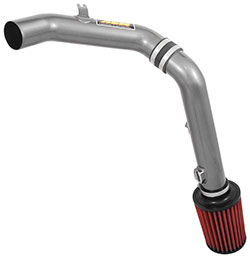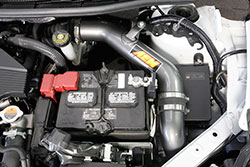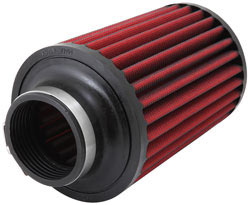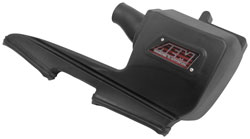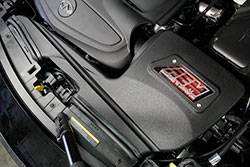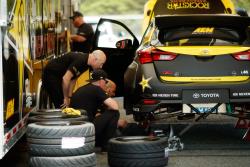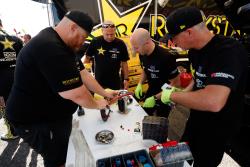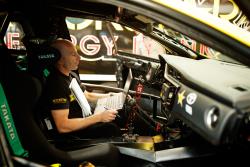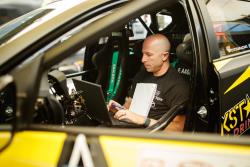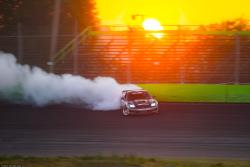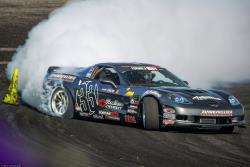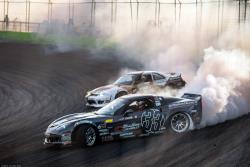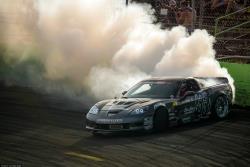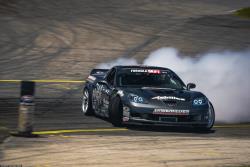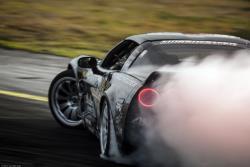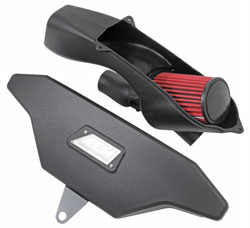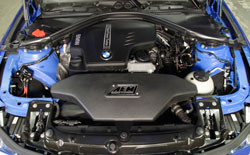2017 Nissan SR Turbo Gains an Estimated 15 Horsepower with an AEM Cold Air Intake
- Aug 2, 2017
While the Le Mans version of the MR16DDT engine produced 300 horsepower, when fitted to the 2017 Nissan Sentra SR Turbo, power is reduced to 188 horsepower. AEM can help bring some of that race-inspired power back with the 21-818C cold air intake system that increases horsepower by an estimated 15 horsepower at the drive wheels. The AEM 21-818C intake system is a true cold air intake system in that the air filter itself has been relocated to a position outside of the high-temperature engine bay. By drawing air directly from the outside, intake air temperatures are as close to ambient as possible. With cooler air entering the turbocharger, cooler air will come out. Cooler air is recognized by the ECU as having the ability to combine with more fuel. Cooler air, more fuel, equals more power.
The MRY16DDT is a 1.6L inline four cylinder all-aluminum engine that is slightly under-square, with a bore of 3.14-inches and a stroke of 3.19-inches. The design features twin variable valve timing (CVTCS) controlling the double-head camshafts and four valves per cylinder (with sodium-filled exhaust valves for better transfer of heat). Details include spray-coated and mirror-finished cylinder bores applied to the 1.6 L engine, and a nanofinish on the camshafts. The engine features a single turbocharger that can operate up to 12 psi and an intercooler that reduces intake temperatures caused by the compression of the turbocharger. Stock output is 130 horsepower at 6,000 rpm and 128 lb-ft of torque at 3,600 rpm. Both horsepower and torque are easily increased with the simple, straightforward AEM 21-818C cold air intake. The AEM cold air system for the 2017 Nissan Sentra SR Turbo consists of two mandrel-bent aluminum intake tubes, a silicon coupler, a venturi adapter, and an oversized AEM Dry Flow conical air filter. The factory PCV and MAF sensor mount directly on the intake tube, the MAF relocated for additional cooling and performance.
The AEM 21-814C cold air intake is a relatively straightforward DIY modification that takes just a few hours to install, even for someone with little mechanical experience. Tools required are those that just about everyone has in their garage. The AEM 21-818C utilizes only the factory mounting locations, so there are no holes to drill or permanent modifications to make.
You can purchase the AEM 21-818C cold air intake factory direct for your 2017 Nissan Sentra SR Turbo directly from the AEM website, as well as a 21-2157DK replacement filter, and the 1-1000 synthetic air filter cleaner. The AEM 21-818C is designed to fit the following vehicles: 2017 NISSAN SENTRA 1.6L L4 Fuel Injection - All Models | ||||
| ||||
| | ||||


